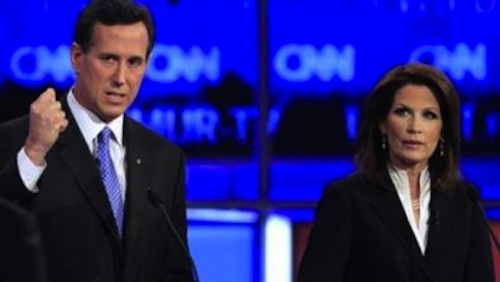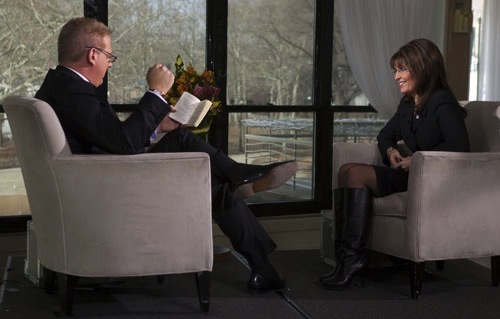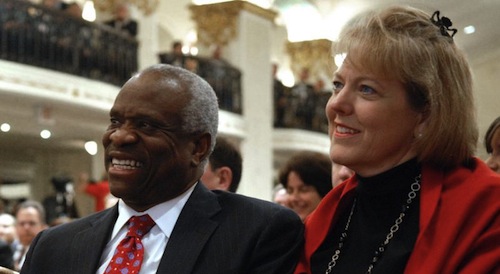
Republican presidential candidates Rick Santorum and Michele Bachmann, standing up for something or other
Last week, when Michele Bachmann and other, less amusing Republican presidential candidates visited Iowa, they were approached by local busybody Bob Vander Plaats and asked to sign something called The Marriage Vow. You may remember Vander Plaats from his infuriatingly successful campaign to recall Iowa Supreme Court justices who said gay marriage was constitutional, or from when he offered to fellate you in a highway rest stop, although that second one is technically libel. Anyway, Bachmann and man-on-dog guy signed the heck out of that pledge, taking the politically risky position that families, children, not cheating on your wife and church are all good. Plus, by deduction: homosexuality is bad. Oh, and also black people had it better under slavery, because more of them were married then.





